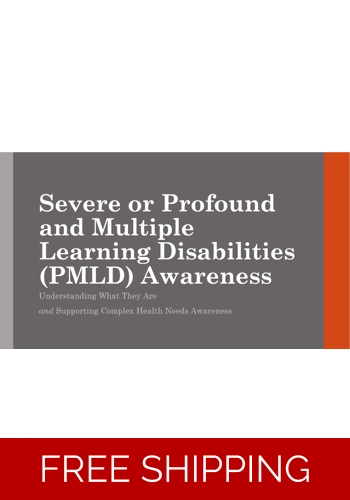Learning Disabilities - Severe or Profound and Multiple (PMLD) Awareness
Severe or Profound and Multiple Learning Disabilities (PMLD) Awareness
Understanding What They Are and Supporting Complex Health Needs Awareness
Presentation in sections, 11 Handouts, End of Session Assessment (mix of multiple choice, True/False and short answer Questions), Trainer Aide Answer Key.
All files editable.
Aims and Objectives:
Overall Aim: To help care workers understand PMLD and learn how to support individuals with complex health needs in a safe, respectful and person-centred way.
Learning Objectives:
Understand what PMLD means.
Recognise common complex health needs.
Know how to support individuals in daily care.
Improve communication and person-centred practice.
Presentation (91 Slides)
Aims and Objectives
Welcome and Objectives
Section - Understanding What They Are
What Does PMLD Mean?
What Is a Severe Learning Disability?
What Is a Profound Learning Disability?
Differences Between Severe and Profound Learning Disabilities
Common Characteristics of PMLD
What Causes PMLD?
Genetic Conditions
Conditions Caused During or After Birth
Cerebral Palsy and PMLD
Each Person Is Unique
Section - Health Needs in PMLD
What Are Complex Health Needs?
Epilepsy and Seizure Management
Gastrostomy Feeding and Nutrition
Respiratory Difficulties
Mobility and Postural Care
Sensory Impairments and Their Impact
Section - Person Centred Care
Person-Centred Care
Understanding Preferences and Communication
Promoting Dignity and Respect
Supporting Rights and Inclusion
Involving Families and Advocates
Section - Communication Support
Why Communication Matters
Understanding Non-Verbal Communication
Responding to Sensory Cues
Communication Aids and Tools
Supporting Individual Communication Styles
Section - Sensory and Environmental Issues
Why the Environment Matters
Sensory Stimulation
Sensory Overload
The Importance of Routine and Predictability
Creating a Person-Friendly Environment
Section - Supporting Daily Living
Why Daily Living Support Matters
Supporting Eating and Drinking
Supporting Washing and Dressing
Supporting Toileting Needs
Supporting Positioning and Movement
Section - Working with Healthcare Professionals
Why Teamwork Matters in PMLD Care
The Role of Nurses
The Role of Physiotherapists
The Role of Occupational Therapists (OTs)
The Role of Speech and Language Therapists (SLTs)
Your Role in Shared Care
Section - Legal and Ethical Considerations
Understanding Rights in Care
The Mental Capacity Act (MCA)
Best Interests Decisions
Safeguarding and Protecting People
Section - Keeping People Safe
Infection Control Basics
Safe Manual Handling
Emergency Procedures -Seizures
Emergency Procedures -Aspiration and Choking
Being Prepared for Emergencies
Section - Values and Attitudes
The Importance of Respect
Challenging Stigma
The Importance of Respect
Promoting Independence in PMLD
Respecting Cultural and Personal Identity in PMLD
Promoting Inclusion for People with PMLD
Section - Case Study Examples
Case Study 1 –Supporting Communication
Case Study 2 –Managing Complex Health Needs
Case Study 3 –Promoting Independence
Case Study 4 –Challenging Behaviour and Sensory Needs
Case Study 5 –Working with Families and Healthcare Professionals
Section - Case Study Examples (Complex Health Needs)
Case Study 1 –Managing Complex Health Needs in PMLD
Case Study 2 –Supporting Mobility and Postural Care
Case Study 3 –Sensory Needs and Behaviour Support
Case Study 4 –Working with Families and Healthcare Teams
Section - Reflection and Best Practice
The Importance of Self-Reflection
What Good Support Looks Like
Continuous Improvement
The Role of Supervision
Section - Key Messages Recap
Key Messages Recap
Important Health and Safety Points
Next Steps and Further Learning
Useful Resources and Support
Word Documents
11 x Handouts
End of Session Assessment
Trainer Aide Answer Key
HSC Training Link
Training Resources for Health and Social Care
Resources purchased are emailed to you via
Zip Folder attachment.
All packs are written in a generic style and can easily
be adapted to suit your own specific training delivery.
Resources are Word and PowerPoint based.
Secure payments via PayPal Merchant Commerce Platform.
You do not need a PayPal account to use this payment
gateway.
Debit and credit card payments accepted.


